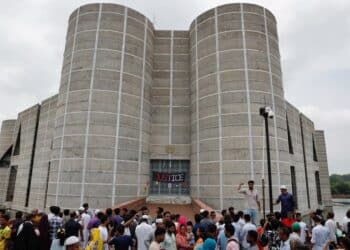The remarkable achievement of Manchester City in securing four consecutive Premier League titles is a testament to the club’s strategic approach to building a championship-winning squad. This success did not come overnight but was the result of meticulous planning, significant financial investment, and an exceptional scouting network. Central to this strategy was acquiring key players who could make an immediate impact while also investing in the future through youth academy graduates.
One of the standout acquisitions was Kevin De Bruyne, whose vision, passing accuracy, and leadership on the pitch have been pivotal to Manchester City’s dominance. De Bruyne’s ability to control the tempo of the game and make decisive contributions in critical moments has solidified his place as one of the best midfielders in the world. Another crucial player, Raheem Sterling, brought speed, agility, and a consistent goal-scoring threat, adding another dimension to Manchester City’s attacking prowess.
The acquisition of Ederson, the talented Brazilian goalkeeper, addressed a key area of need for the club. Ederson’s exceptional shot-stopping abilities, combined with his composure and distribution skills, have made him an indispensable part of the team. His presence in goal has provided the defensive stability necessary for Manchester City to implement their high-pressing style of play.
In addition to these marquee signings, Manchester City’s scouting network has been instrumental in identifying and recruiting talented players from around the globe. This has allowed the club to build a squad with depth and versatility, capable of adapting to various tactical demands. The influence of financial investments cannot be overlooked either, as it has enabled the club to compete for top-tier talent in the transfer market.
Moreover, the impact of youth academy graduates has been significant. Players like Phil Foden have seamlessly integrated into the first team, showcasing the club’s commitment to nurturing homegrown talent. Foden’s technical skills and football intelligence have made him a key contributor, underlining the importance of a robust youth development system.
By combining strategic acquisitions, a strong scouting network, and a focus on youth development, Manchester City has successfully constructed a cohesive and highly skilled squad capable of sustained success in the Premier League.
Manchester City’s Tactical Mastery Under Pep Guardiola
Pep Guardiola’s tenure at Manchester City has been marked by a profound tactical mastery that has revolutionized the club’s playing style and contributed significantly to their four consecutive Premier League titles. Guardiola’s footballing philosophy is deeply rooted in principles of positional play, high pressing, and meticulous ball possession, which have been instrumental in Manchester City’s dominance.
Guardiola’s preferred formation often revolves around a fluid 4-3-3 setup, allowing flexibility and fluidity in both attack and defence. This formation emphasizes the importance of width provided by wingers, as well as the role of the full-backs who often invert to overload the midfield. This strategic use of space and positioning has enabled Manchester City to maintain control over matches, dictating the tempo and rhythm of play.
One of the hallmarks of Guardiola’s tactical acumen is his pressing strategy. Manchester City employs a high-pressing game, aiming to win the ball back as soon as they lose possession. This relentless pressure forces opponents into making mistakes and allows City to regain control swiftly. The synchronization and understanding among players in executing this press is a testament to Guardiola’s rigorous training and emphasis on tactical discipline.
Ball possession is another cornerstone of Guardiola’s tactics. Manchester City often dominates possession, with players demonstrating exceptional technical skills and composure on the ball. This approach not only exhausts opponents but also minimizes the risk of conceding goals by controlling the game’s flow. Guardiola’s emphasis on short, quick passes and maintaining a high tempo has been pivotal in breaking down even the most stubborn defences.
Guardiola’s ability to adapt his tactics to counter different opponents has also been crucial. Whether facing a team that sits deep or one that presses high, Guardiola’s tactical tweaks ensure Manchester City remains competitive. His emphasis on versatility allows players to operate in multiple positions, providing the team with various tactical options. Furthermore, Guardiola’s strategic player rotation has kept the squad fresh, reducing the risk of injuries and ensuring peak performance throughout the demanding Premier League seasons.

Consistency and Mental Resilience of Manchester City
Winning four consecutive Premier League titles is a testament to Manchester City’s consistency and mental resilience. Achieving such a feat requires an exceptional level of performance sustained over multiple seasons. One of the key factors behind this consistency is the squad depth. Manchester City’s management has meticulously built a team with multiple world-class players for each position. This depth allows the team to maintain high-performance levels, even when faced with injuries or suspensions.
Injury management is another crucial aspect that has contributed to Manchester City’s success. The club has invested significantly in medical and fitness staff, ensuring that players receive the best possible care. This proactive approach to injury prevention and recovery minimizes the impact of injuries on the team’s overall performance. By having a well-oiled system in place, Manchester City can quickly adapt to the absence of key players without compromising their tactical approach.
Beyond the physical aspects, the psychological fortitude of the team has been equally important. Competing at the highest level comes with immense pressure, and Manchester City has demonstrated remarkable mental toughness. The coaching staff, led by Pep Guardiola, has instilled a winning mentality within the squad. Regular mental conditioning sessions and a focus on maintaining a positive mindset have been integral in helping the players cope with the rigors of top-flight football.
Several moments of adversity have tested the team’s resilience. For instance, during the 2020-2021 season, Manchester City faced a challenging period with a string of injuries to key players. Despite this, the team managed to maintain their form and went on to secure the title. Such instances highlight the psychological strength and unity within the squad, enabling them to overcome obstacles and emerge victorious.
In essence, Manchester City’s ability to consistently perform at the highest level is a blend of strategic squad management, advanced injury prevention, and robust mental resilience. These elements collectively contribute to their sustained success in the Premier League.
Rivalry and Competition
The journey to Manchester City’s four consecutive Premier League titles is inextricably linked with the fierce competition they faced. Among their most formidable rivals were Liverpool and Manchester United, two clubs with storied histories and immense fan bases. Each season, the head-to-head clashes with these teams were pivotal, often swinging the momentum of the title race.
Liverpool, under the management of Jürgen Klopp, emerged as Manchester City’s primary adversary. Their high-pressing, fast-paced style of play posed significant challenges. The 2018-2019 season was a prime example, with Liverpool finishing just one point behind City, amassing an astonishing 97 points. These narrow margins underscored the intensity of their rivalry, pushing Manchester City to consistently perform at their peak.
Manchester United, another key rival, also played a crucial role in shaping City’s title runs. The Manchester derbies were not just about local bragging rights but often had significant implications for the title race. Matches against United were fiercely contested, with both teams eager to assert dominance over the city. These high-stakes encounters brought out the best in Manchester City, compelling them to elevate their game.
Beyond these key rivalries, the broader competitive landscape of the Premier League also influenced Manchester City’s strategies and performances. The league’s unpredictable nature, with every team capable of causing upsets, meant that City had to maintain a high level of consistency and focus. Their dominance, however, had a ripple effect on other teams’ strategies. Rivals were forced to innovate and improve, leading to a more competitive and dynamic league overall.
In essence, the rivalries and competition Manchester City faced during their title runs were instrumental in shaping their success. The relentless pressure from formidable opponents and the competitive nature of the Premier League spurred City to continually elevate their game, ultimately leading to their historic achievement of four consecutive titles.










